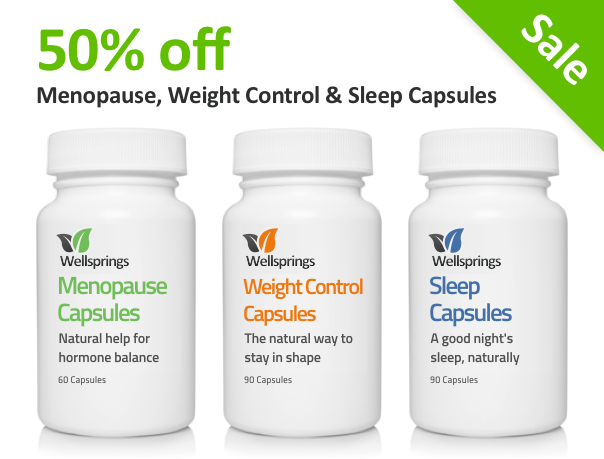How To Deal With Early Menopause
Early menopause can happen for a variety of reasons. How can you help protect yourself from this sudden hormone imbalance which occurs and can carry health risks?
I increasingly hear from women who are in menopause much earlier than traditionally would have been expected. In the UK, the average age of menopause is 51 but it seems that at least 1 in 20 women are experiencing an early menopause according to a study carried out at Imperial College London.
Their report has shown that higher than expected numbers of women stop having periods before the age of 40. The study says that there is no expected reason for this, and that this figure is much higher than previous estimates, which go back to the 1980s and were as low as 1%. Almost 5000 women’s records were studied but the researchers were unable to explain why this phenomena was occurring.
What can cause premature menopause
It is important to understand why premature menopause is important for a woman’s health. It certainly carries health risks and research in the USA indicated that women who experienced menopause before the age of 46 had more than twice the risk of having a heart attack, stroke or other cardiovascular problem.
One often overlooked effect of a premature menopause is the higher incidence of osteoporosis that can result. Women need both oestrogen to break down old bone and progesterone to build new bone but if only oestrogen is given then more bone is broken down than can be built up unless bioidentical natural progesterone is also given.
The researchers may have been unable to discover why, but bioidentical doctors could have given them a few reasons.
Apart from the accepted wisdom that having a hysterectomy, even a partial one, or chemotherapy can certainly bring on a full menopause and the accompanying symptoms from hot flushes to weight gain.
There is no acknowledgement that one of the issues may well be the fact that as the late Dr John Lee observed many, many years ago which is that we now have several generations of women who have been exposed to synthetic hormones via the contraceptive pill and HRT.
As a pioneer of natural progesterone cream usage he definitely saw a link between synthetic hormones, oestrogen dominance and early menopause. In a seminar I facilitated with Dr Lee in London many years ago, he was asked about a young woman who was experiencing a very early menstrual cycle and he postulated that before the advent of the Pill and HRT women had not been exposed to synthetic hormones in this way and that it was bound to have an effect on their hormonal health.
That it would have an effect on the woman immediately taking hormones is apparent, but what he was suggesting was that this could be passed down to her daughter and then her daughter’s daughter and so on.
To me this certainly makes sense and since the advent of synthetic hormones we have become more aware of the dangers attached of them. To this we have also added the weight of the environmental xenoestrogens that are now so common.
We may not know the exact reasons for this rise in premature menopause but we can certainly use the information we already have to make an educated guess. Dr Lee was very clear about the health impact of oestrogen dominance and synthetic hormones tip that balance even further in the direction of hormone imbalance.
What can you do?
One of the reasons many women have an early hysterectomy is for excessive bleeding and fibroids, both related to oestrogen dominance. The key is getting the hormones in the right ratio so that progesterone and oestrogen are balanced as they are meant to be.
Progesterone counteracts the negative effects of excess oestrogen which is linked to heart disease and breast cancer. If you are potentially at risk for those conditions through family history it make sense to get oestrogen dominance under control by checking regularly for symptoms of it and to counteract it with bioidentical progesterone to get he hormones back in balance.
Going into a surgical menopause, which is what a hysterectomy is, means you will be most likely offered HRT which is usually oestrogen alone or a combination of oestrogen and a synthetic progestin.
Unoppposed oestrogen poses health risks so a synthetic is often included in HRT to try to balance the effects of the oestrogen, but it cannot do this as effectively as can the bioidentical progesterone recommended by Doctors familiar with the benefits of such hormones.
If you are undergoing treatment for cancer of the breast or endometrium you can again use bioidentical progesterone to help counteract the hot flushes that so often accompany, or follow, such treatment.

















